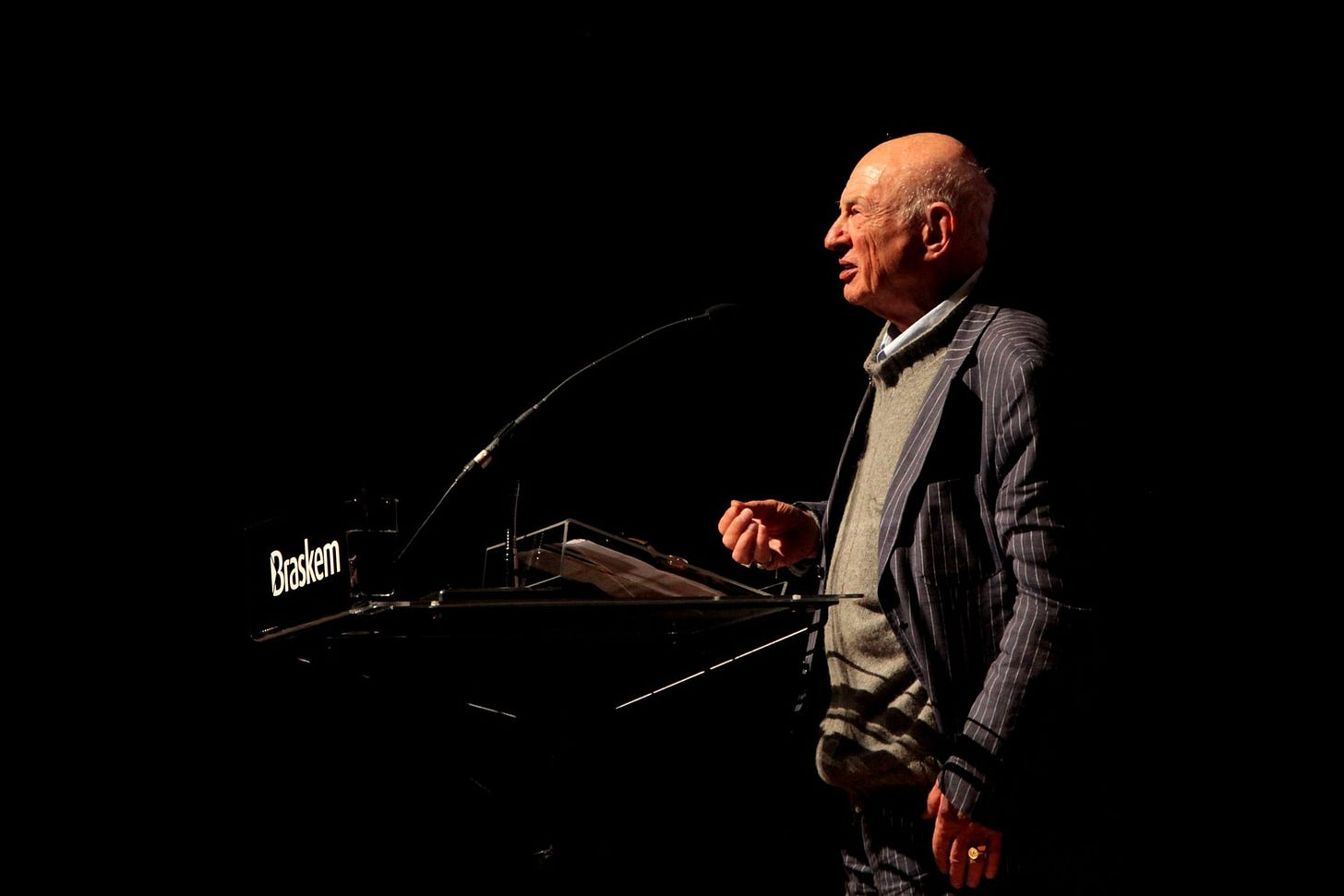How Complex Situations Feel: Edgar Morin

I have been searching for an understanding of complexity grounded in human experience. From what I have read so far, most definitions concerning complexity focus on the characteristics of complex systems. While an important part of understanding complexity, I have been more concerned with what it feels like to encounter situations where we engage with complex systems. My thinking is that if we understand complex situations by the way they feel, we have another indicator of when we need to begin to change strategies and tactics to fit the context. At the same time, the feeling of complex situations may also add another valuable layer of understanding to what it means to call something complex.
Beyond Dave Snowden's insight that complexity corresponds with multiple competing hypotheses, the general understanding that in complex situations cause and effect are not proportionate or closely linked in time and space, the leading experiential understanding of complexity I have found comes from the work of French sociologist Edgar Morin (2008):
“When someone says, ‘It’s complex. It’s very complex!,’ the word complex does not constitute an explanation, but rather indicates the difficulty in explaining. The word serves to designate something we really can't explain, but that we shall call 'complex.' For this reason, if there really is a complex form of thinking, it won't be capable of opening all doors (like those keys that open safes and cars). It will, on the contrary, be a thinking wherein difficulty is is forever present'” (p.84).
This excerpt comes from an essay titled "The Epistemology of Complexity" found in Morin's book On Complexity. Within the above quote, there is plenty to unpack. In my interpretation, Morin (2008) begins by offering that saying a situation is complex is not in itself an explanation of what is happening. Instead, referring to a situation as complex indicates it is difficult to explain the situation. To Morin, the word "complex" denotes a situation where we experience difficulty in trying to explain what is happening to the point of never being able to do so.
Borrowing from the work of Humberto Maturana (1988) on explanations, a difficulty explaining is encountered when we struggle to use our past experience to propose a mechanism or process that would adequately account for what we are seeing. In other words, we encounter a difficulty in explaining when we struggle to use our still accumulating knowledge to articulate why what is happening is happening. From my perspective, explanations can be understood as stories we tell about causal mechanisms or processes that would produce the effects we are experiencing. In Maturana's work, an inability to explain the events taking place before us leads to feelings of strangeness, awe, or doubt that are resolved only through satisfactory explanation (Maturana, 1988; Maturana, 1995). These feelings can be added as another layer to the quote from Morin. Lastly, a difficulty explaining, whether it manifests as a lack of agreement around which explanation is more appropriate, an absence of experience required to account for what is taking place, the failure of proposed processes or mechanisms to satisfy us, or a need for additional time and resources, can stall action. This is because explanations serve as a key element of our sense-making as they tell us why the events around us are taking place - they are how we gain understanding. By consequence, explanations establish a collection of actions that would be reasonable to then take (Maturana, 1988).
In the next line, Morin (2008) seems to indicate that in complex situations the difficulty explaining never resolves itself (by consequence neither would Maturana's feelings of uncertainty). Meaning, we are never able to reach one explanation that satisfactorily accounts for how our experiences are coming to be (why what is happening is happening). This is an important element of his understanding as he is ruling out the possibility of more computing or processing power as a solution to complexity (Sterman, 2000). Complexity then is not something we can solve for but something we have to engage with. He goes on to say that if there is a complex way of thinking, it is one where difficulty is a constant. Seemingly extending beyond just the act of explanation, complex thought always encounters difficulty. Perhaps it sets itself apart from simple thought by acknowledging this difficulty and engaging with it rather than trying to simplify or reduce it. Adding to the above, the inability to explain persists only as long as a situation remains complex. Seen as a transitionary mechanism, gaining the ability to explain may signify the movement of a complex situation into a complicated one (Kurtz & Snowden, 2003).
Connecting Morin's (2008) words with the work of Axelrod and Cohen (2000) and Kurtz and Snowden (2003), an adequate "right" explanation might reveal itself retrospectively. That is, after action has been taken an accurate accounting of our experience and its connected course of action become identifiable. Said another way, after we have engaged with a complex situation we are able to see what story about cause and effect (explanations) was right. While not part of the above quote, Morin (2008) does indicate complexity features "random phenomena...which add uncertainty to thinking" (p.84). In complex situations, then, random events make it impossible to forecast ahead of time what will happen next including the outcomes of our actions.
From Morin's (2008) insight, the feeling of complex situations is marked by a difficulty in explaining what is going on accompanied by feelings of uncertainty about the present situation as well as the future. Connected with the work of Humberto Maturana, this difficulty lies in using our past experience to provide an accounting for our present experiences. Complex situations can be understood as those that have the feeling of a lack of understanding of the dynamics underlying what is taking place. There is not a total lack of understanding as we might experience in chaotic situations, in fact there may be several as pointed out earlier. However, there is no way to know which one is correct in the present. Further, the experienced difficulty in explaining the present is resolved through taking action where useful explanations and appropriate courses of action appear only after the fact.
References
Axelrod, R., & Cohen, M. D. (2000). Harnessing complexity: Organizational implications of a scientific frontier. New York, NY: Basic Books.
Kurtz, C. F., & Snowden, D. J. (2003). The new dynamics of strategy: Sense-making in a complex and complicated. IBM Systems Journal, 42(3), 462-483.
Maturana, H. (1995). The nature of time. Chilean School of Biology of Cognition.
Maturana, H. R. (1988). Reality: The search for objectivity or the quest for a compelling argument. The Irish Journal of Psychology,, 9(1), 25-82. doi:10.1080/03033910.1988.10557705
Morin , E. (2008). On complexity. (R. Postel, Trans.) Cresskill, NJ: Hampton Press.
Sterman, J. D. (2000). Business dynamics: Systems thinking and modeling for a complex world. New York, NY: McGraw-Hill.



